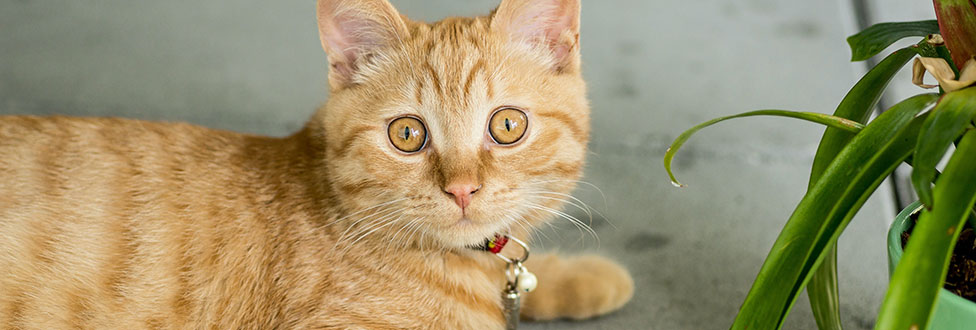ARL Offers Tips During Animal Poison Prevention Week
Animal exposure to poison impacts countless animals annually
It’s National Animal Poison Prevention Week, and the Animal Rescue League of Boston (ARL) is raising awareness to common household items that can be toxic, or even fatal, for our furry friends.
Watch ARL discussing this topic with Boston Fox affiliate WFXT.
Cleaning Products
The ingredients to avoid in household cleaners are phenols – a parent compound used as a disinfectant. If the label says “disinfectant”, “antibacterial”, or “sanitizer”, chances are it contains phenolic compounds, which can be toxic to dogs and cats.
Helping keep our pets safe means reading labels to find pet-friendly products, diluting solutions, keeping pets out of rooms until surfaces are dry to the touch, and cleaning with care.
Also make sure there is ample airflow, to avoid possible respiratory issues for pets that could arise due to the strong fumes of some cleaning products.
Gardening
It’ll soon be time to get out into the yard as the weather warms, and for many, this means gardening projects, including flowers.
It is important to keep in mind that there are a number of flowers that can be toxic to pets, especially cats.
Lilies of any variety, daffodils, tulips, chrysanthemums, and hyacinths should be avoided.
There are also a number of garden pesticides, fertilizers, and chemicals that are pet-friendly and should be utilized if your pets will be frolicking in the yard when the weather turns warmer.
Food Concerns
Not feeding our pets from the table promotes good manners, but also promotes good health, as many of the foods we eat are toxic to our pets.
When it comes to food, it’s important to keep the following foods away from our pets;
- If ingested in significant amounts, citrus can cause stomach upset or even nervous system depression
- Grapes and raisins. Although it’s unknown what the toxic substance is, the fruit can cause kidney failure in pets
- Almonds, pecans, and walnuts contain high amounts of fat and can cause pancreatitis in pets
- Onions and garlic. These can cause gastrointestinal issues, or even red blood cell damage
- Salt and Salty Snacks. These foods produce excessive thirst and can lead to tremors, elevated body temperature, seizures, or even death
Additionally, we all know that chocolate is a no-no, but there are plenty of other foods that are off the menu for pets.
Along with chocolate, many foods contain the sweetener xylitol and if ingested, could lead to liver failure.
Poison Control
Fortunately, pet poison control hotlines are available and are ready to help.
This is a service that is offered by a number of microchip companies, and the American Society for the Prevention of Cruelty to Animals (ASPCA) also has a poison control hotline, which can be reached at (888) 426-4435.
When you call a pet poison control hotline, the operator will gather information from you and depending on what they’ve ingested and symptoms they’re displaying, you will either treat at home, or bring your animal to a veterinarian for emergency treatment.
If it’s the latter, poison control will contact your veterinary office, relay the information, and a plan of treatment is in place and ready to go once you arrive.
Despite the safeguards we take, our pets are curious and sadly, thousands of pets are impacted by ingesting something poisonous every year. Remember, should you suspect your pet has gotten into something they shouldn’t have, take immediate action as every second counts!

